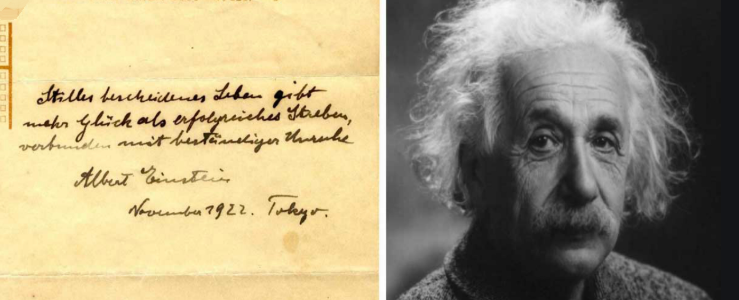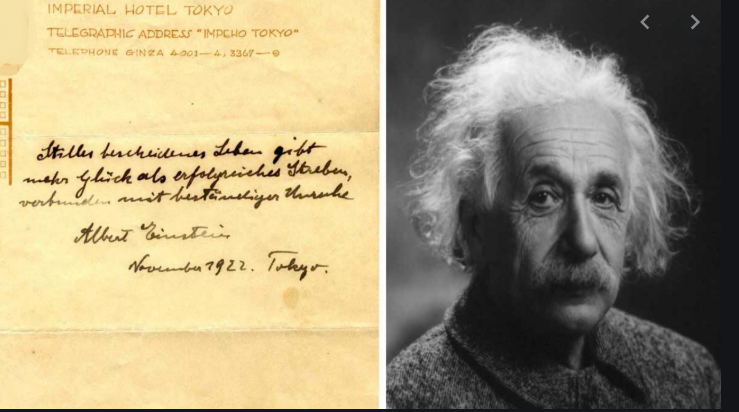
International Happiness Day: “Embrace a calm and modest way of life and experience happiness”

Theory of Happiness “ A calm and modest life can bring happiness than the constant pursuit of success combined with constant restlessness.”
Albert Einstein’s theory of happiness was scribbled in a note in lieu of a tip on stationery from the Imperial Hotel in Tokyo, Japan, as his pockets were empty, in 1992 saying that it could be worth far more one day. Ninety-five years later, It was just sold by Winner’s Auctions and Exhibition based in Jerusalem, for more than $1.56m in October 2017. Einstein wrote such as thing, as much of his life was dedicated to arduous, intellectually revolutionary pursuits, perhaps feeling overwhelmed at the time?
When he jotted down he had just been informed that he had won the Nobel Prize in Physics, the sudden fame and publicity were physically and mentally exhausting for him.
Albert Einstein published his General Theory of Relativity arguing that the universe consists of a fundamental fabric: space-time and the fabric is wrapped by massive objects resulting in bending and curing explains what we perceive as gravity.
In 2004, researchers reviewed 225 studies and distilled that happiness more often leads to success rather than the other way around. “ Happiness leads to behaviours that often produce further success in work, relationships and health, and these successes result in part from a person’s positive affect”. So it was Einstein’s serene and reflective moments that gifted him the happiness to work so diligently and accomplish so much?
